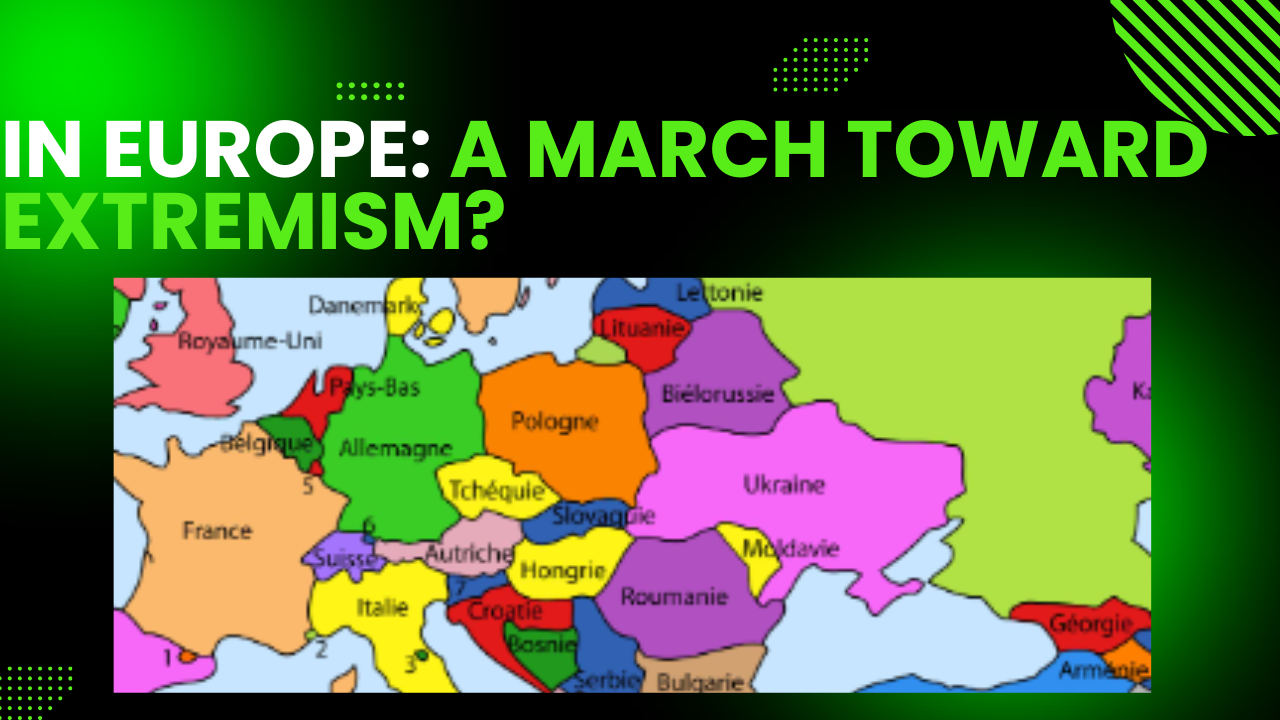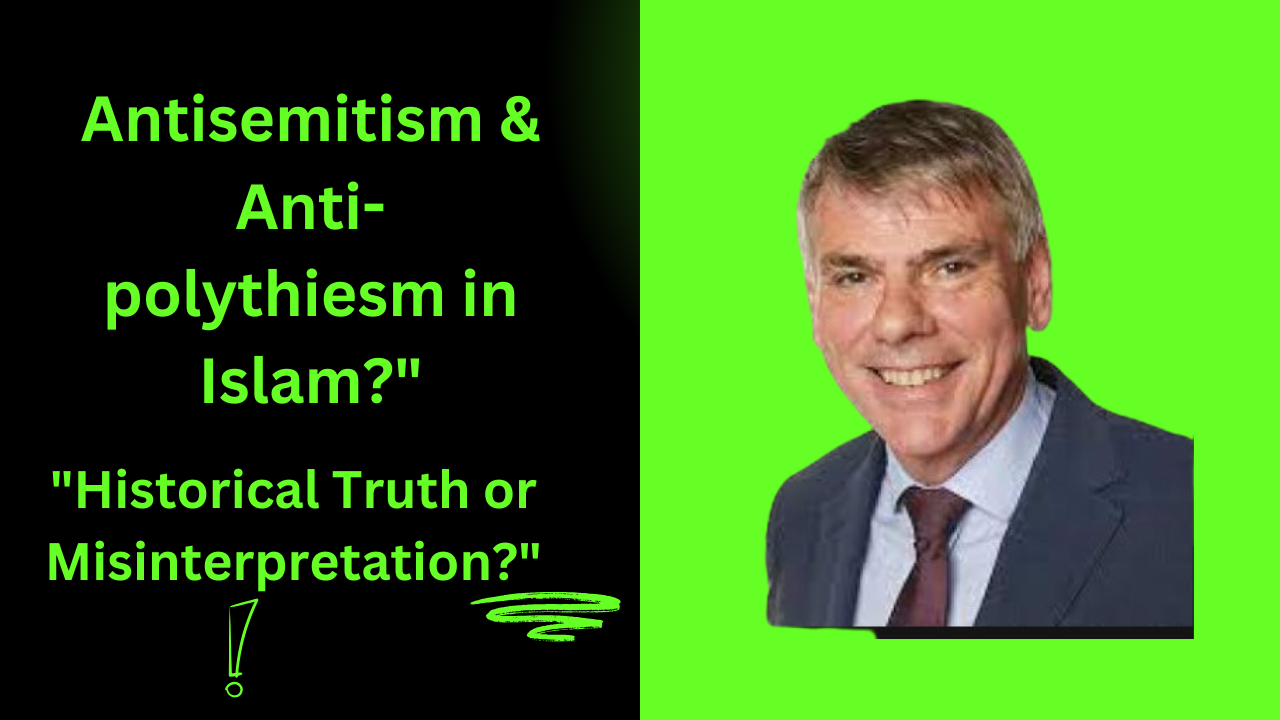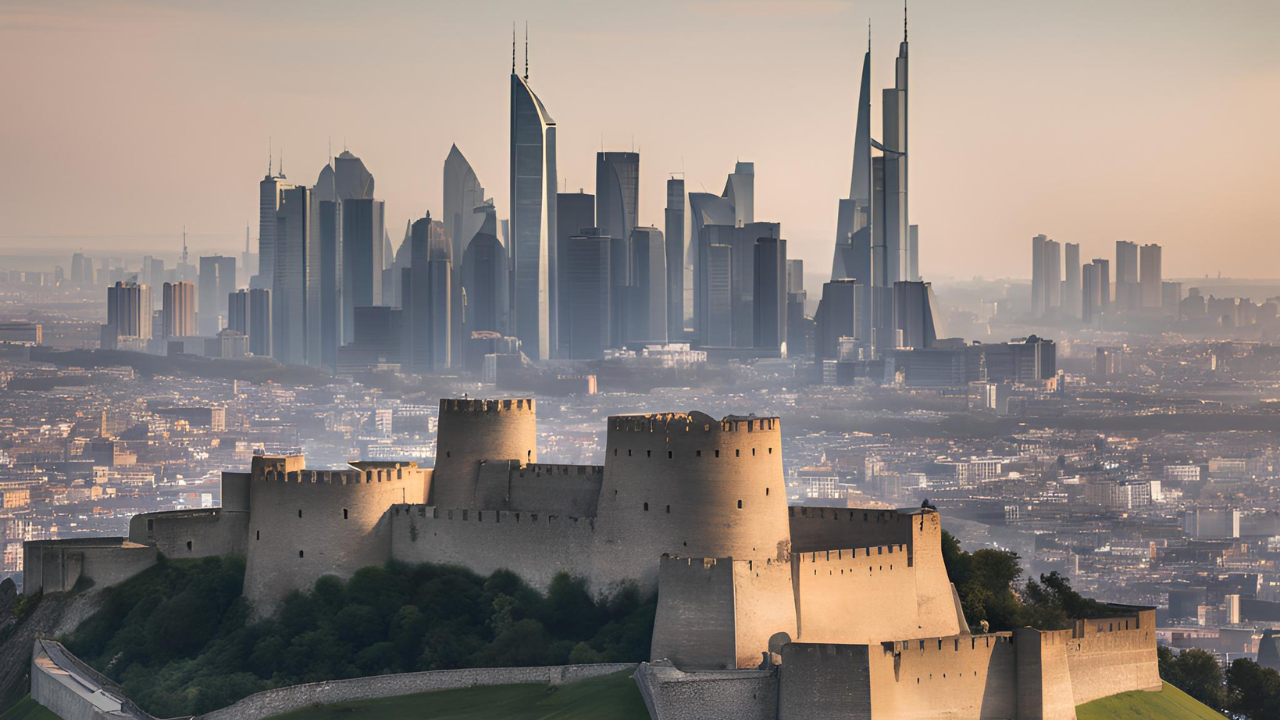Watch The Video: https://youtube.com/shorts/DZuH0TGSXuM?feature=share
In recent years, Europe has witnessed a rise in organized protests by Islamist groups advocating for the establishment of a global Islamic Caliphate and Sharia law. Among the countries where this movement has gained unsettling visibility is the Netherlands, where recent demonstrations in Amsterdam saw participants waving ISIS, Al-Qaeda, and Taliban flags. This raises not only security concerns but also deep-seated societal questions about the future of European values and freedoms in the face of rising extremism.
In this blog, we explore the motivations behind these movements, examine the implications for European societies, and consider how this trend might impact other communities, including Hindus, Jews, and other minority groups.
A Demand for Caliphate and Sharia in Amsterdam
The sight of extremist symbols like the flags of ISIS and Al-Qaeda in the Netherlands is a jarring contrast to the country’s reputation as a peaceful, tolerant, and inclusive society. These protests, often carried out under the pretense of religious rights or political freedom, demand the implementation of Sharia law in European states and aim for the ultimate goal of establishing a global Islamic Caliphate.
The protesters involved are not a small, inconsequential group. They are well-organized, determined, and aligned with some of the world’s most dangerous extremist ideologies. Recent marches have demonstrated their willingness to use European freedoms to propagate messages that are fundamentally opposed to those freedoms, aiming to replace secular governance with a system that strictly follows Islamic law. This paradox – using democratic freedoms to challenge democracy – has become a significant point of concern for European policymakers, security agencies, and citizens alike.
Radical Flags and Dangerous Ideologies
The flags of ISIS, the Taliban, and Al-Qaeda represent ideologies that have perpetuated some of the most brutal acts of terrorism in recent decades. These groups are infamous for their oppressive tactics, violent jihadist agendas, and their severe interpretations of Sharia law. Waving these flags in European cities is not only a form of symbolic violence against Western values, but it is also a tangible reminder of the growing influence of radical Islamist ideas on European soil.
These displays of extremist symbols are designed to intimidate and instill fear within communities. They challenge the social fabric and send a chilling message to minorities, including Jews, Hindus, and secular citizens who value freedom of belief and practice. The symbolism of these flags serves as a warning that extremist ideologies are no longer confined to conflict zones in the Middle East; they are finding footholds in the heart of Europe.
Europe’s Historical Lessons: A Pattern of Violence Against Jews
The recent attacks on Israeli nationals in Amsterdam highlight a disturbing pattern that has repeated throughout history. Often, extremist movements target Jewish communities first before extending their reach to other groups. Europe, in particular, has a painful history of anti-Semitic violence, from the pogroms of the medieval era to the atrocities of the Holocaust.
The resurgence of anti-Semitic attacks by Islamist groups is a worrying indicator of what may lie ahead. History has shown that movements rooted in hatred and intolerance seldom stop at one community. If left unchecked, the threat posed by these extremist ideologies could grow, putting other minority communities, including Hindus, Sikhs, Buddhists, and even secular citizens, at risk. This cycle of targeting minority groups is not just an attack on the people themselves; it’s an attack on the pluralistic foundations of society.
A Broader Threat to All of Europe
The demand for Sharia law and a Caliphate doesn’t just pose a threat to specific religious or ethnic groups. It poses a danger to the foundational principles of democracy, equality, and freedom upon which European societies are built. Islamist extremist ideologies conflict with the rights enshrined in European constitutions, such as gender equality, freedom of speech, and freedom of belief. Sharia, in its strictest interpretations, imposes limitations that clash with these freedoms, calling for severe punishments for behaviors that are fully protected in a secular, liberal society.
Moreover, the call for a Caliphate directly challenges the sovereignty of nation-states. By advocating for a single Islamic governance system that transcends national borders, these groups threaten the very concept of nationhood and identity. If these demands were to gain ground, Europe could face a profound transformation, potentially undermining its democratic institutions and the rights of its citizens.
Implications for Hindu and Other Minority Communities
For Hindu communities in Europe, the rise of Islamist extremism has specific implications. As a religious minority that values pluralism and tolerance, Hindus have often found themselves at odds with extremist ideologies. Similar to the Jewish experience, Hindus have historically faced violence, especially in regions where Islamist groups wield power.
In the Netherlands, Hindu communities have traditionally enjoyed relative peace and acceptance. However, the rise of extremist demands for Sharia law raises concerns about religious freedom and safety. As Islamist groups advocate for legal changes aligned with their strict beliefs, there is a real risk that religious minorities will face increased discrimination, harassment, and possibly even violence.
Islamist extremists view non-Muslim communities, particularly those from polytheistic religions like Hinduism, as targets for either conversion or suppression. This often results in a climate of hostility and mistrust, where minorities live in fear of persecution. This is not just an issue in the Netherlands but reflects a larger trend in Europe, where multicultural societies are struggling to balance religious freedom with the need to curb extremist ideologies.
Conclusion: A Wake-Up Call for Global Security
The rise of Islamist extremism in the Netherlands is not just a national issue but a global one. It signals a shift in the tactics of extremist groups, who are increasingly looking to exploit democratic freedoms to advance anti-democratic agendas.
For Hindu communities and other minorities, this development poses specific risks that warrant attention and action. The call for a Caliphate and the imposition of Sharia law in Europe are not isolated incidents; they represent a movement with far-reaching implications. To protect the values of freedom, tolerance, and democracy, Europe and the global community must take a proactive stance in addressing and countering these threats.
Watch the Video: https://youtube.com/shorts/DZuH0TGSXuM?feature=share
#Netherlands #Amsterdam #IslamistMarch #ShariaLaw #CaliphateDemand #ExtremismInEurope #ISISFlags #EuropeSecurity #RadicalIslam #WakeUpEurope #GlobalTerrorism #KnowYourNeighbor #ThreatToFreedom


